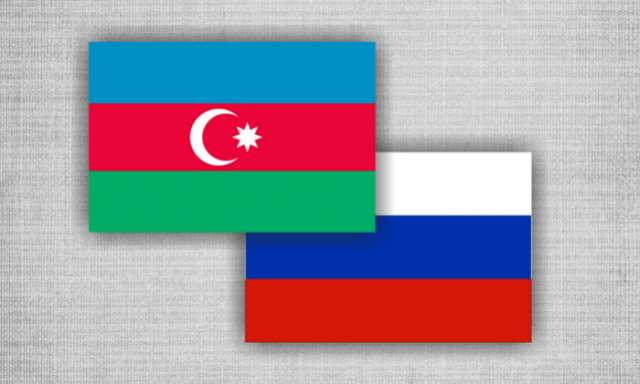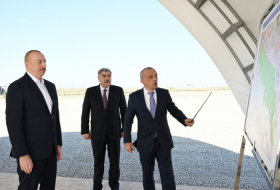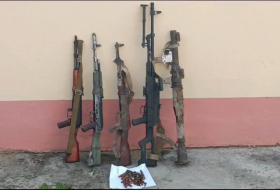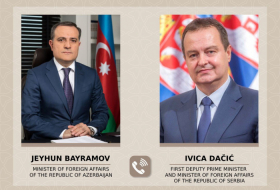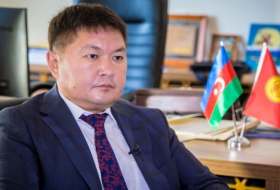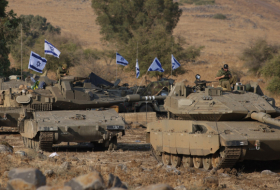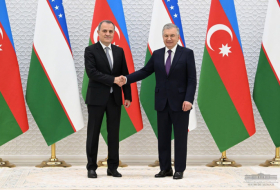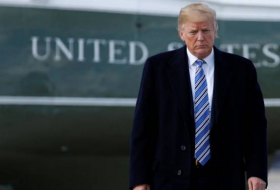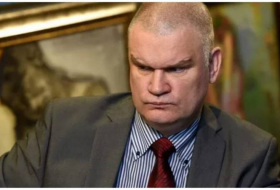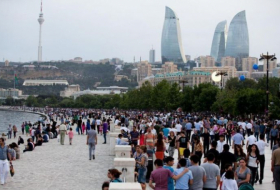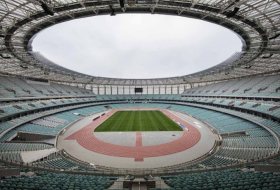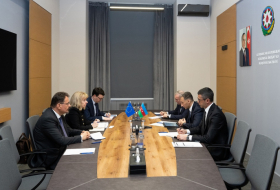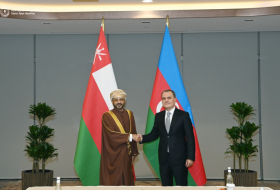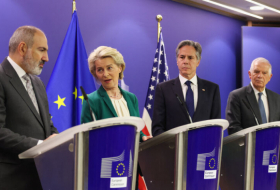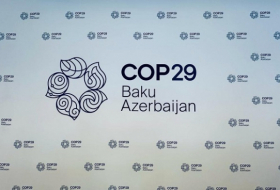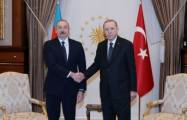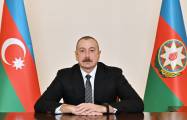The event was organized by the North-South political center under moderation of Anzhelika Trapeznikova, the executive director of North-South, and Gulnara Mammadzade, the head of the Caspian Expert Club.
In a welcoming speech, the moderators of the round table noted the importance of holding a meeting for forming an expert dialogue of Caspian littoral states, as well as the prospects for further cooperation, particularly in the field of security.
Speaking at the event, Azerbaijani MP Rasim Musabayov drew the attention of the round table participants to the qualitative changes that occurred in the context of regional security, including that of the Caspian Sea.
According to him, cooperation going beyond the frames of the partnership of the littoral states and beyond the Caspian region is necessary for neutralizing risks and threats in the region and in the Caspian Sea.
Musabayov noted that, as of today, this kind of a tight cooperation exists between Russia and Azerbaijan. The two countries hold joint military exercises aimed at neutralizing terrorist threats, exchange experience and information, and law enforcement agencies of the two countries closely cooperate in the area of security – all of which allow for the preservation of security.
Touching on the issues of Russian-Azerbaijani cooperation in the context of the new challenges for the Caspian region, the roundtable participant Stanislav Chernyavsky, Director of the Center for Post-Soviet Studies at Moscow State Institute of International Relations, noted certain positive trends with regards to the resolution of the Nagorno-Karabakh conflict.
Chernyavsky spoke positively about the past meeting of the parties in Vienna in March of this year, noting that there was an intensification of regular contacts between the leaders of Azerbaijan and Armenia, including the participation of the Russian side.
While breaking down the topic of the development of North-South, East-West and South-West transport corridors, stating that they are a condition for ensuring the security of the Caspian region, Azerbaijani political scientist Ilgar Velizade said that the economic aspect is one of the foundations that motivates the security of the Caspian region today.
Thanks to the implemented projects, a new logistic map of the region is being formed, and all regional players show great interest in making use of these logistics, which is an incentive for security, according to him.
Velizade noted that the southern regions of Russia are actively using the infrastructure that is being built in the South Caucasus, which ensures the development of economic ties between Russia and Azerbaijan.
According to him, some experts often misinterpret the events occurring in the region, while comprehending the interdependence of the countries – in this case, Russia and Azerbaijan –depends on correct assessment and analysis by experts and the media.
Touching on the signing of the “Constitution of the Caspian Sea” in the context of ensuring regional security in the South Caucasus, Konstantin Kurylev, Doctor of History at the Department of Theory and History of International Relations of Peoples' Friendship University of Russia, said that this convention is of serious importance not only from a regional, but also from a global standpoint, as it creates conditions for ensuring stability and security in the Caspian.
According to the Russian expert, this will significantly strengthen the position of Azerbaijan in the region, as it provides an opportunity for increasing the volume of international cargo transportation, as well as increasing interest in the Baku-Tbilisi-Kars transport corridor.
According to Kurylev, the Caspian Convention is important for Baku not only from an economic, but also from a political standpoint.
While addressing the issue of regional conflicts and security in the South Caucasus, Elkhan Alasgarov, PhD, head of the Expert Council of the Baku Network, said that the most important condition for ensuring stability and security in the South Caucasus is the settlement of the years-long Nagorno-Karabakh conflict.
According to the political analyst, two blocs formed in the South Caucasus that influence the situation in the region - these are the Collective Security Treaty Organization (CSTO) and NATO.
“NATO’s presence in the South Caucasus is gradually expanding, and this became obvious after the CSTO’s prestige decreased in connection with the scandal over Secretary-General Khachaturov’s resignation. As for the situation in Armenia, the pro-Western element clearly strengthened with the rise of a new government in the country. Nevertheless, a favorable situation is emerging today for the resolution of the conflict, since the level of external threats and risks has been reduced. For example, the spread of terrorism in Syria has been prevented, the level of risks and threats with respect to Iran has been reduced, and I believe that, in this situation, the settlement of the Nagorno-Karabakh conflict should become a priority in the South Caucasus. In my opinion, the future of the South Caucasus without a resolution of this problem seems obscure,” Alasgarov said.
Furthermore, in the context of deepening economic relations between Azerbaijan and Russia in light of the formation of a new technological structure in the world economy and economic security, deputy director of the Russian School of Economics Professor Elshad Mammadov emphasized that there has been a fairly high level of volatility in the world economy in recent years. At present, the world economy is moving to the stage of forming a new, sixth technological order, and the geography of centers of activity and the structural component of economic development are changing.
Mammadov noted that one of the key points in the sphere of cooperation between Russia and Azerbaijan is the positive dynamics in trade, and – from the point of view of the development of the Azerbaijani non-oil sector, and taking into account the fact that Azerbaijan is implementing a policy of diversification of the economy – Russia is deemed a priority direction.
In the near future, it is necessary for Russia and Azerbaijan to implement investment programs, switch to mutual settlements in national currencies, and also increase the degree of technological cooperation between business entities, according to him.
Issues regarding information security were raised by Tofig Abbasov, Senior Advisor of the Baku International Multiculturalism Center, who noted that Azerbaijan and Russia need to work out mechanisms of complementarity so that there are no problems in this direction.
In conclusion, the roundtable participants discussed the problem of terrorist threats in the Caspian and South Caucasus, as well as the risks associated with the transport of narcotic drugs to the Caspian states.
Speaking on this topic, expert on national security issues Kamil Salimov noted that the threat of drugs in the South Caucasus and in the Caspian countries tends to grow.
According to him, this is largely due to the fact that the tactics, strategy and methods of delivering drugs by land and sea are changing.
Salimov emphasized the fact that terrorist threats against the region have become more frequent since the beginning of Armenia’s occupation of Azerbaijani territories.
Summing up the event, Gulnara Mammadzade, moderator of the round table and head of the Caspian Expert Club, noted the importance of holding such expert meetings, which create a platform for discussions on global issues and issues of the international agenda.
The expert noted that all these pressing issues need to be discussed and analyzed in order to transmit an objective and competent opinion to the public.
More about: Russia Azerbaijan








